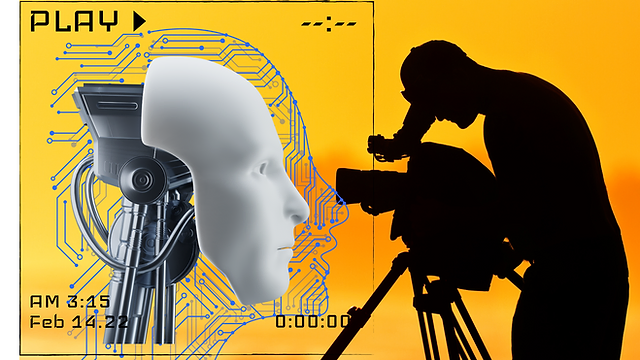Introduction:
AI in Entertainment is changing everything we know about creativity. Imagine a world where movies are written by algorithms, virtual influencers dominate the charts, and hit songs are composed by machines. This isn’t science fiction—it’s happening right now. Artificial intelligence has stepped into the spotlight, transforming how entertainment is created, consumed, and even imagined.
Whether it’s de-aging actors, generating symphonies, or personalizing content recommendations, AI is no longer a behind-the-scenes tool—it’s a co-creator. In this article, we’ll explore how AI is rewriting the rules of creativity in movies and music and what it means for the future of entertainment.
Lights, Camera, Algorithm: AI in Filmmaking
Scriptwriting and Storytelling:
AI tools like OpenAI’s GPT-4 are now capable of generating scripts, dialogues, and even entire story arcs. While they haven’t replaced human writers yet, they’re being used to brainstorm ideas, develop characters, and overcome creative blocks. For example, the 2016 short film Sunspring was entirely written by an AI, blurring the lines between human and machine creativity.
Visual Effects and Animation:
AI is revolutionizing visual effects (VFX) by making processes faster, cheaper, and more realistic. Tools like deepfake technology can seamlessly de-age actors (as seen in The Irishman), resurrect historical figures, or even create entirely digital characters. Studios like Industrial Light & Magic use AI to generate hyper-realistic environments and creatures, reducing the need for practical effects.

source
Editing and Post-Production:
AI-powered software can analyze hours of footage to select the best takes, suggest edits, and even assemble rough cuts. Companies like Adobe and Final Cut Pro are integrating AI to automate color grading, sound mixing, and motion tracking—tasks that once took days now take minutes.
Personalized Content Curation:
Streaming platforms like Netflix and Disney+ use AI algorithms to analyze viewing habits and recommend content tailored to individual preferences. This not only enhances user experience but also helps studios understand audience trends and optimize future productions
Sound of the Future: AI in the Music Industry
AI-Generated Music:
AI is composing everything from classical symphonies to pop hits. Tools like Amper Music and AIVA allow users to generate original tracks based on genre, mood, and instrumentation. In 2023, an AI-generated song mimicking Drake and The Weeknd went viral, raising questions about copyright, creativity, and the role of artists in an AI-driven world.
Vocal Synthesis and Virtual Artists:
Voice-cloning AI can replicate anyone’s vocal tone and style. Platforms like Vocaloid and Synthesizer V have given rise to virtual artists like Hatsune Miku, a holographic pop star with millions of fans. Meanwhile, artists like Holly Herndon use AI to create entirely new forms of collaborative music.
Mastering and Sound Engineering:
AI-powered tools like LANDR and iZotope can master tracks with studio-level quality in minutes, making professional sound engineering accessible to independent artists. These tools analyze audio patterns and apply optimizations that once required expensive hardware and expert
Music Discovery and Curation:
Streaming services like Spotify and Apple Music use AI to curate personalized playlists, predict hits, and even identify emerging artists. By analyzing listening patterns, AI helps listeners discover new music while giving independent musicians a platform to reach global audiences.
Conclusion:
AI isn’t here to replace artists; it’s here to expand the canvas of creativity. By automating tedious tasks, enhancing storytelling, and unlocking new forms of expression, AI is empowering creators to dream bigger and audiences to experience more. If you want to learn more about how AI is transforming the music industry, check out our article on AI-generated music.
The future of entertainment isn’t a choice between human and machine—it’s a collaboration. Learn more about the impact of AI in filmmaking and how it’s reshaping Hollywood storytelling. And as the lines between artist and algorithm blur, one thing remains clear: the show must go on.

